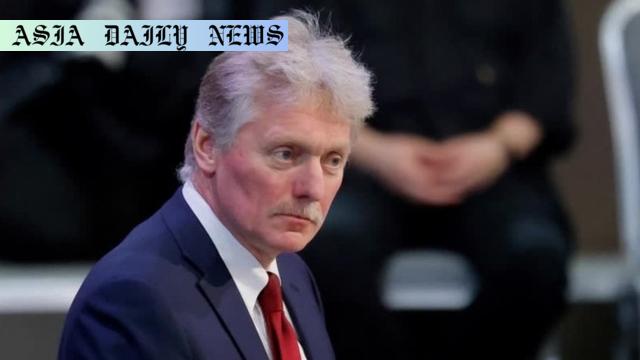Zelenskyy’s Letter underscores Ukraine’s willingness for peace talks, but Kremlin questions linger considering legal barriers.
- Zelenskyy’s Letter emphasizes Ukraine’s readiness for negotiations.
- The Kremlin acknowledges Ukraine’s positive move but questions its legal feasibility.
- US President Trump highlighted this correspondence during a policy speech.

Introduction: A Moment of Hope
In an era of prolonged geopolitical tensions and a relentless war in Eastern Europe, glimmers of peace resonate strongly with global audiences. Recent reports that highlight Ukrainian President Volodymyr Zelenskyy’s willingness to engage in peace negotiations have sparked optimism. The revelation came through US President Donald Trump, who revealed receiving a letter from the Ukrainian leader. In the letter, Zelenskyy expressed Ukraine’s readiness to embrace peace talks ‘as soon as possible,’ with the hope of edging closer to a lasting resolution. This development has invited a cautiously positive reaction from the Kremlin but has also exposed some deeply rooted challenges and barriers hampering the process.
The Kremlin’s Reaction: Cautious Optimism
Dmitry Peskov, the spokesperson for Russian President Vladimir Putin, described Zelenskyy’s letter as a potential breakthrough that signals a willingness to address the crisis diplomatically. However, he flagged a crucial limitation: Ukraine’s current legal framework prohibits direct negotiations with Russia. This provision, enacted early in the conflict as a protective measure, now acts as a stumbling block for any meaningful dialogue. Peskov indicated that although the intent behind Zelenskyy’s letter is acknowledged positively, the Kremlin remains uncertain about who represents the legitimate negotiating authority in Ukraine.
Trump as a Mediator: The Implications
US President Donald Trump’s decision to disclose the contents of Zelenskyy’s letter adds another dimension to the geopolitical chessboard. Trump’s announcement during a public speech reflects an attempt to showcase his potential role as an influential mediator in the Ukrainian conflict. His involvement could act as a double-edged sword: while his administration might push for meaningful negotiations, this association could also polarize the landscape, given the divisive political climate within the United States. Questions are also being raised on whether such public revelations were advantageous to Ukraine’s diplomatic strategy.
Challenges Ahead for Peace Dialogues
The apparent willingness of Ukraine to alleviate the strains of war is encouraging, but the road to peace negotiations is fraught with complexities. For one, logistical challenges tied to Ukraine’s legal restrictions may stall formal conversations. Meanwhile, existing trust issues between Moscow and Kyiv also compound the problem. Past instances where temporary truces or agreements were dishonored have created skepticism on both sides. Moreover, Western allies like the EU and NATO have a vested interest in the trajectory of these discussions. Their involvement could either bolster the peace efforts or complicate them further depending on geopolitical alignments.
Conclusion: A Hope for De-escalation
While Zelenskyy’s letter demonstrates a step in the right direction toward reconciliation, transforming rhetoric into actionable results will require a unified effort of multiple stakeholders. Trust-building measures, legal amendments, and third-party mediation will all play vital roles in ensuring that the peace process is not only initiated but also sustained in the long term. The world watches with bated breath, hoping that diplomacy can win over discord.



Commentary
Balancing Optimism with Realism
The revelation of Zelenskyy’s willingness to embrace peace talks undoubtedly offers a sliver of hope in a conflict that has inflicted immeasurable suffering on millions. As individuals and global citizens, we are naturally drawn to any sign of an end to bloodshed and instability. This recent development provides cautious optimism, but it must be viewed through a pragmatic lens. It is encouraging to hear positive feedback from the Kremlin, yet their stance reveals an enduring skepticism that could hinder meaningful progress.
The Role of Mediators
One particularly intriguing aspect of this development is the role played by external actors, particularly the United States. Former President Donald Trump’s disclosure of Zelenskyy’s letter places him in a potential position of influence over forthcoming negotiations. However, given the United States’ already pronounced support for Ukraine through military aid and financial assistance, Russia might perceive Trump’s involvement as a partisan move rather than impartial mediation. Striking the right balance in diplomacy is critical.
The Roadblocks Ahead
There’s no denying that legal and political constraints will be major impediments. Ukraine’s legislative prohibition on direct talks with Russia stands as an enormous hurdle that needs to be addressed. For peace to be truly viable, the lines of communication must first be cleared of such obstacles. Likewise, historical infractions against past truces breed distrust, making it imperative that any new agreements come with robust mechanisms for accountability.
A Collective Responsibility
Ultimately, the prospect of peace is not one that solely lies in the hands of Zelenskyy or Putin. It requires a concerted effort from international stakeholders, mediators, and civil societies to create an environment conducive to effective negotiations. As global awareness grows, so does the responsibility to advocate for de-escalation and constructive dialogue. Only through collective action can the world help steer one of its deepest conflicts toward a resolution.